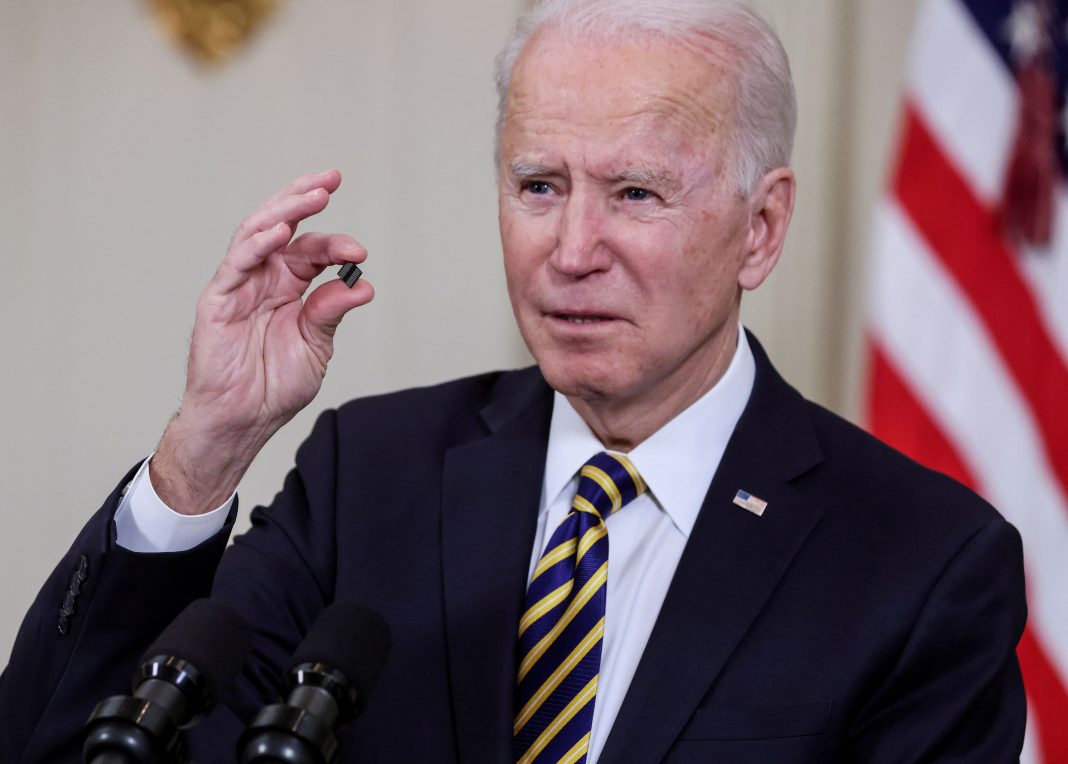In a new series of meetings with big firms on Thursday, the White House will discuss methods to overcome a semiconductor chip supply crisis that is hurting auto manufacturing throughout the world.
Companies such as General Motors (GM.N), Ford Motor (F.N), and Stellantis (STLA.MI), as well as Apple (AAPL.O), Daimler AG (DAIGn.DE), GlobalFoundries, Micron (MU.O), Microsoft (MSFT.O), Samsung (005930. KS), TSMC (2330. TW), and others, will be hosted by Commerce Secretary Gina Raimondo and Director of the White House National Economic Council.
The White House intends to submit a voluntary request for information this week in order to obtain more information from the industry on the chip problem and potential supply chain remedies.
A Biden administration official told reporters Wednesday that the administration is soliciting comments within 45 days to learn more about “supply and demand, inventories, ordering, and customer segments.”
“We have other tools in the tool kit to survey firms and require information,” the official said, saying they would first seek voluntary efforts.
Another official told reporters the Biden administration also plans to stand up a voluntary “early alert system for COVID-19 related shutdowns to microelectronics manufacturing around the world,” gathering information from U.S. embassies, impacted businesses, and others.
Taiwan’s economy minister stated last month that the country was doing everything it could to address the worldwide semiconductor shortage.
As Taiwan scrambles to persuade the United States, its most significant international supporter, and arms supplier, that it is doing everything it can, the issue has taken on strong diplomatic color, especially as Taipei faces greater military pressure from China, which sees Taiwan as its territory.
According to data firm IHS Markit, global light car manufacturing will drop by five million this year due to semiconductor shortages and delayed packaging and testing of chips. According to some automakers, the problem will persist until late 2022 or early 2023.
Due to a COVID-19 revival in key Asian semiconductor production centers, automakers ranging from General Motors to Toyota Motor Corp (7203.T) have reduced output and sales projections.GM halted production in most of its North American plants earlier this month.
AMD (AMD.O), Applied Materials (AMAT.O), Medtronic (MDT.N), and Siemens are among the other firms that will be present on Thursday (SIEGn.DE). The White House is requesting $52 billion from Congress to increase semiconductor chip manufacture in the United States.












